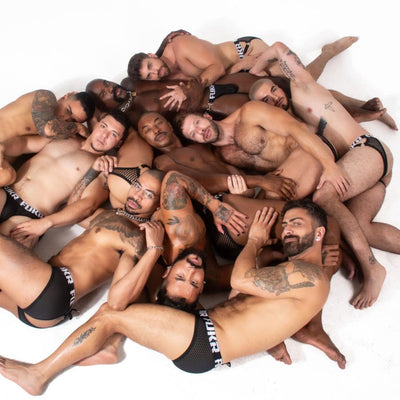Here’s why Millennials are amazing at marriage
Article by Nicholas Velotta
There are a lot of myths surrounding Millennial relationships. Especially popular is the belief that Millennials don’t like marriage—that hooking-up, cohabitation, and single or co-parenting has become so destigmatized, twenty-somethings think it’s en vogue to shrug off marriage entirely. While this all makes for great Netflix rom-com series and humorous opinion pieces, much written about “Millennial dating culture” paints an exaggerated image of more subtle social trends. As it turns out, Millennials marry in similar numbers to other generations and have the lowest divorce rates among all age groups.
MODERN MILLENNIALS, TRADITIONAL VALUES
The data is clear: Millennials want to get married just as much as previous generations. In fact, Millennial men may be a bit more traditional in this regard compared to Gen X or Baby Boomer men. A recent survey released by the Council on Contemporary Families found the majority of young Millennial men (between the ages of 18 to 25) preferred stay-at-home wives over working women. When it comes to gay men, marriage is still a fairly new alternative to cohabitation, yet we see some evidence that the youngest gay men are also becoming more conservative with their relationship choices. Monogamy, marriage, and conventional dating scripts are more accepted in the LGBTQ community than ever. And how could they not be? After all, the battle to legalize same-sex marriage (and with it, the “culture” of American marriage) occurred only four years ago.
But why do Millennials want marriage over, say, a committed live-in partner? The answer may very well lie in their own experiences with parents who split.
WHY MARRIAGE IS STILL IMPORTANT TO YOUNG PEOPLE
A quick re-cap: Baby Boomers fought for equality at home and in the workplace—including emotional, sexual, and financial fulfillment for both partners. When their marriages got tough, most Boomers went their separate ways rather than staying together “for the children.”
Because of this, Millennials were the first generation to see a majority of their parents divorce. Experts debate the psychic traumas that such a dramatic shift in family life may have caused for these young people, but one effect that widespread divorce may have incurred on the up-and-coming generation is a reevaluation of what REALLY makes marriage last.
Millennials (and particularly young Millennial men), developed a sense of nostalgia for a time when men and women stuck it out, when marriage was a respected covenant, and, perhaps for some, a time when gender roles existed for wife and husband (at least in terms of who stays employed after saying, “I do.”).
So, marriage became more respected, albeit more traditional to the youngest of Millennial men, but why do Millennials succeed at marriage more than their predecessors?
KNOWING MORE, DIVORCING LESS
Over the last few years I have combed through a litany of supposed reasons as to why Millennial marriages are more durable than Boomer marriages. The determinant of marital success always lands on one factor: a college education. Those with a college degree are (1) more likely to get married, and (2) more likely to stay that way. Fortunately for Millennials, they’re the most educated generation in American history.
This makes a lot of sense to someone like me who studies this stuff. Not only does a university setting allow students to interact with people and cultures they otherwise may never experience back home, Millennials have a lot more time to learn who they are and what they want out of adult life compared to Boomers when they were the same age. No doubt these factors pushed college-educated Millennials to develop stronger communication skills and senses of identity BEFORE getting married.
Equality is important for Millennials too. Even if the occasional twenty-five-year-old is more traditional than his peers when it comes to marriage, Millennials as a cohort grew up in a society that recognized men and women as peers, and most act as such. We’re coming to the table more self-realized and independent than young people of any other generation.
And when it comes to sex: hook up culture (though overstated in the media) has done wonders for sexual exploration in young adulthood. Millennials have open, frank discussions on the spectrums of sexuality and gender and can feel somewhat comfortable investigating their own preferences without familial or communal admonition.
Put shortly: college provides a transitionary phase between adolescence and adulthood that gifts valuable time to modern daters to check off a lot of boxes that past generations left bare. College, it seems, is the unsung savior of marriage.
Nicholas Velotta is a sex and relationship researcher and writer located out of the University of Washington in Seattle.




